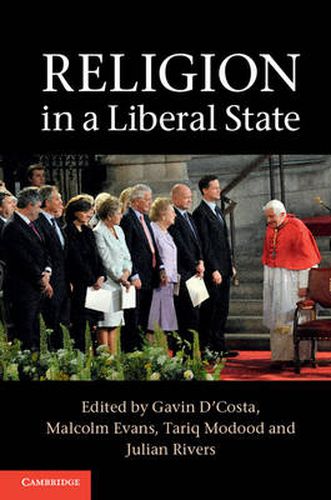Readings Newsletter
Become a Readings Member to make your shopping experience even easier.
Sign in or sign up for free!
You’re not far away from qualifying for FREE standard shipping within Australia
You’ve qualified for FREE standard shipping within Australia
The cart is loading…






As religion has become more visible in public life, with closer relations of co-operation with government as well as a force in some political campaigns, its place in public life has become more contested. Fudged compromises of the past are giving way to a desire for clear lines and moral principles. This book brings the disciplines of law, sociology, politics and theology into conversation with one anther to shed light on the questions thrown up by ‘religion in a liberal state’. It discusses practical problems in a British context, such as the accommodation of religious dress, discrimination against sexual minorities and state support for historic religions; considers legal frameworks of equality and human rights; and elucidates leading ideas of neutrality, pluralism, secularism and public reason. Fundamentally, it asks what it means to be liberal in a world in which religious diversity is becoming more present and more problematic.
$9.00 standard shipping within Australia
FREE standard shipping within Australia for orders over $100.00
Express & International shipping calculated at checkout
As religion has become more visible in public life, with closer relations of co-operation with government as well as a force in some political campaigns, its place in public life has become more contested. Fudged compromises of the past are giving way to a desire for clear lines and moral principles. This book brings the disciplines of law, sociology, politics and theology into conversation with one anther to shed light on the questions thrown up by ‘religion in a liberal state’. It discusses practical problems in a British context, such as the accommodation of religious dress, discrimination against sexual minorities and state support for historic religions; considers legal frameworks of equality and human rights; and elucidates leading ideas of neutrality, pluralism, secularism and public reason. Fundamentally, it asks what it means to be liberal in a world in which religious diversity is becoming more present and more problematic.